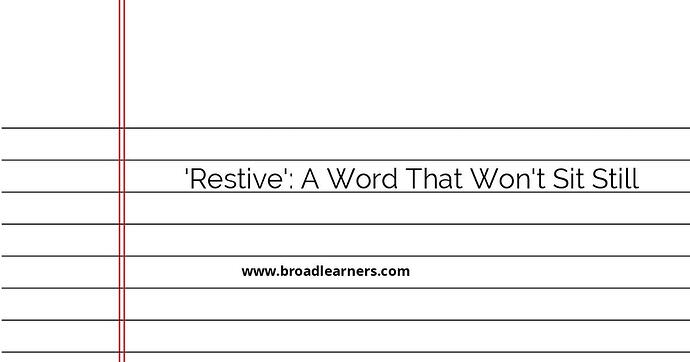Let's delve into the word 'restive' and explore its meaning and usage in sentences. Understanding this word will help you enhance your vocabulary and communicate effectively. 'Restive' is an adjective that describes someone who is impatient, uneasy, or restless, especially under restraint or delay. It can also refer to someone who is stubborn and refuses to be controlled or guided.
Here are a few examples to illustrate the usage of 'restive' in sentences:
- The horse was becoming restive as the parade grew nearer.
- Despite her best efforts, the child remained restive during the long car ride.
- The employees grew restive as they awaited news about the company's reorganization.
Now, let's break down each example to understand how 'restive' is used:
1. The horse was becoming restive as the parade grew nearer.
In this sentence, 'restive' is used to describe the horse's behavior as it gets closer to the parade. The word indicates that the horse is getting agitated or uneasy, possibly due to the upcoming event.
2. Despite her best efforts, the child remained restive during the long car ride.
Here, 'restive' suggests that the child was restless or impatient during the extended car journey, despite any attempts to calm or distract them. The word highlights the child's uneasiness or discomfort.
3. The employees grew restive as they awaited news about the company's reorganization.
In this example, 'restive' is used to show that the employees were becoming restless or impatient while waiting for information about the company's reorganization. The word conveys a sense of growing unease or dissatisfaction among the employees.
By understanding the meaning of 'restive' and seeing how it is used in sentences, you can effectively incorporate this word into your vocabulary and writing to express feelings of impatience, unease, or resistance in a precise manner.
Did I miss anything? Respond below
